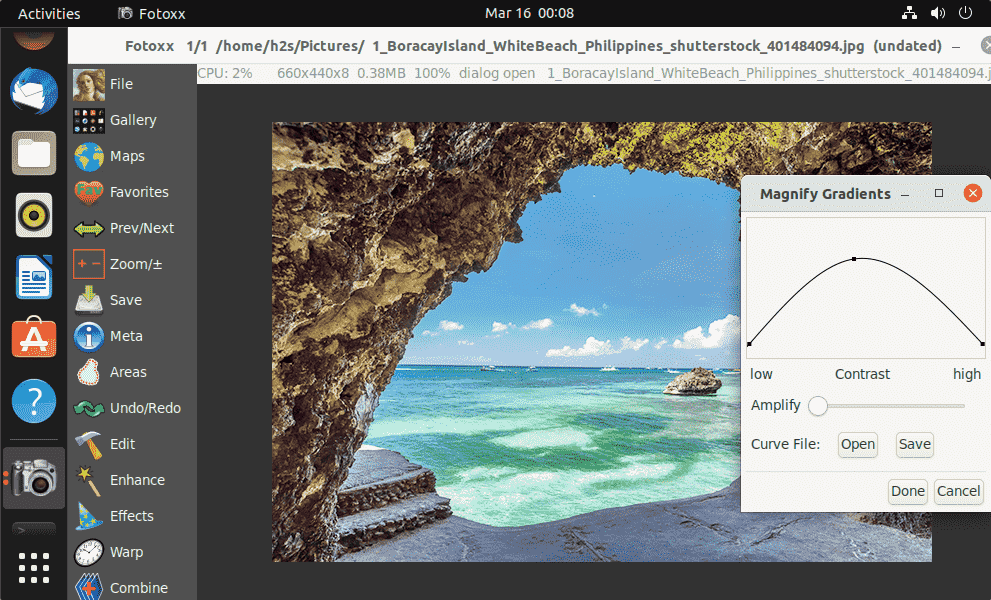The Home of the Security Bloggers Network
Home » Security Bloggers Network » How to choose the best WordPress web hosting provider
You’re searching the web for information on how to choose the best WordPress web hosting service, right? You’re determined that your website host will help search engines prioritize your website above other slower, less reliable and less secure websites. But, how do you decide?
This blog post defines the four main types of WordPress web hosting – with easy to digest merits and limitations for each. It also sets out the important, optional extras offered by the higher ranking WordPress web hosting providers. After reading our analysis, you’ll be in a great position to decide on which type of web host to select.
Table of contents
There are many factors to consider when looking for the best WordPress web hosting service for your WordPress website or multisite network. The first is to determine which type of WordPress web host you need. There are four main options:
Experienced WordPress website developers will recognize shared server hosting as the ground-floor solution. This allows the creators of fledgling websites to have a website running in minutes. But, is it the best WordPress web hosting service to go for?
This diagram illustrates a shared hosting setup.
As its name suggests, the same web server hosts several other websites. Each sharing all the server’s resources, such as memory and CPU. The only resource that’s not shared with others is the hard disk space where your WordPress website files are stored.
While the merits are compelling, particularly for the inexperienced, the limitations are considerable:
In a shared hosting environment, security is completely outside your control. Your website is as secure – or insecure – as the least secure website on the same server. Unfortunately, WordPress firewalls and security plugins are impotent in the face of such WordPress security risks, since they only protect your website from attacks that originate from the internet. That said, a WordPress activity log plugin would be useful in such a setup because it would at least alert you to file changes on your WordPress website, which might prompt you to investigate further.
Here’s the kicker. If another WordPress website hosted on the same shared server is hacked, attackers can gain access to your website’s files and infect them with malware.
In the case of shared WordPress hosting, particularly if you have a large website, you must decide whether the ease of setup beats the likely intermittent loss of performance and the riskier possibility of getting hacked.
VPS hosting for WordPress has grown in popularity and has the edge over shared hosting because it offers both flexibility and affordability. The concept is very similar to shared hosting, but instead of having access to a limited hard disk space and shared server resources you have access to a complete virtual machine with its own operating system and user accounts. It’s a hybrid of shared hosting and dedicated server hosting.
We used to host this website on a managed VPS. We also have a number of VPS on DigitalOcean, used as a test environment for our WordPress activity log plugin.
This diagram illustrates the architecture of VPS hosting.
VPS hosting provides you with a set up similar to a virtual dedicated server. With VPS hosting, you pay for a virtual machine (VM) on a ‘host machine’ – a physical server that runs hypervisor software, which splits the server’s resources into multiple VMs – each with their own dedicated RAM, HDD space and CPU power.
If you opt for VPS hosting for your WordPress website, there are many advantages over shared hosting:
In a VPS hosting environment, security is all in your hands. If you are using an unmanaged service, it is your responsibility to keep all your software up to date and configure the firewalls, web servers and permissions.
Another consideration is the number of websites you’re running on the same VPS server. The overall server security is only as strong as your least secure WordPress website.
Even if you are using partially or fully managed VPS hosting, you’ll still need to manage some of those items yourself. Unless you have the technical expertise or time to do so, it may be better to opt for hosting that takes care of all the elements that contribute toward security.
With VPS hosting, you have much more flexibility and the option to decide your own configuration. The question in this setup becomes more of a choice between that and your capability to commit to the additional setup and maintenance time it brings with it.
Managed server hosting offers busy website developers an attractive management-free solution for WordPress websites. There’s a current drift toward cloud-based hosting with user-friendly UIs. In its most basic form, this type of hosting solution provides a WordPress website master template that gives you access to the WordPress dashboard, though you won’t be able to install or uninstall WordPress. Meanwhile, your managed host provider takes care of keeping your WordPress version up-to-date, and (though you still have access to adding and removing themes and plugins) you can hand over the responsibility of processing and resolving irritating notifications about updated or no longer supported plugins and themes.
Yes, this convenience incurs more expense than shared or VPS hosting, but many businesses value their liberation from mundane administrative website chores. That means they can dedicate their full attention to their websites’ content and design.
WordPress security is the major edge that managed hosting has over other types. In addition, if you opt for a cloud-based managed hosting provider, your website will be stored in its own container (which means it operates in the same way as a separate, dedicated server as discussed below). The risks posed by the lack of security of other websites on the same server simply disappear.
Billed as a management-free solution, with some of the caveats mentioned above, your greatest determining factor may be whether the convenience – particularly for those running multiple websites – is worth the additional, recurring and multiplied expense.
Dedicated server hosting (sometimes referred to as ‘self-managed’) is both the most compelling set up, not least because it’s also the simplest.
For those who prefer to visualize what they’ve bought, this solution buys you an actual server of your own. You install, set up and maintain everything. This is perfect for server teams with systems engineers in larger organizations that need complex installations.
As with the server setup and configuration, security is all your responsibility in dedicated server hosting solutions – from the server’s operating system to all network services such as web servers and SMTP servers. Users must be familiar with all related configuration and maintenance.
In this case, the main decision appears to be centered around whether having all the necessary resources all to yourself is worth the massive input required to both set up and manage the ongoing maintenance. It is best suited to experienced users or larger businesses with their own server team.
Once you’ve decided on the best WordPress web hosting type, it’s time to move to the next decision: which of the optional extras provided by vendors and other criteria can you not do without?
Depending on the hosting type selected, vendors may offer some of the following bolt-ons. It could be that one of these bolt-ons will help you decide which vendor to pick.
Everyone knows your website’s page load speed affects your SEO, number of visitors and bounce rate. You can test this using free tools such as Pingdom or GTmetrix.
Check the services level agreement of the website hosts you’re considering. Do they guarantee 99% uptime, for example? It’s a sign of a confident and superior website host if they provide a status page on their website, where you can view the network’s status, connections and server health.
Since many websites no longer operate as mere billboards, but offer an interactive web application experience, designing and maintaining secure WordPress websites by design is essential. Does the web host you’re considering offer any security protections?
There’s hardly a WordPress hosting provider that does not supply a free TLS certificate, so make sure you select one who does. They allow you to run your WordPress website safely on HTTPS (a requirement as explained in the definitive guide to WordPress HTTPS, SSL and TLS).
It’s also worth checking whether the particular web host has ever made the news for reasons other than great reviews. Have they ever suffered a data breach or any other security disaster that was, by default, also endured by their clients?
So, how much does everything cost, does a larger fee mean you get the best WordPress web hosting service, and are there any freebies?
Like many other online services, if you pay upfront for a year’s service, you’ll usually get a discount (around 20%).
While all web hosts may offer support, some offer WordPress-specific support as a compelling differentiator. Remember, unless you select dedicated hosting, you’re relying on the datacenter and the individual (shared) server on which your website is hosted – and you’ve access to neither. In these scenarios, when something goes wrong, a website host vendor that knows WordPress, and is independently rated highly for rapid response times, may become your deciding factor. When an internal server error arises, for example, you want to rest easy knowing your host has your back.
And, what happens if you get hacked? Will your intended website host roll up their sleeves?
Ask for a free trial, so you can test not only the performance of your website with the host but also the usefulness of their support documentation, the validity of their 24/7 support sales pitch and the quality of their support.
It’s best to segregate your backups from your hosting provider. We recommend BlogVault as a WordPress online backup service. If your hosting service has backups included, use that too. There is no downside to having a couple of backups.
A staging website is a copy of your live website that is accessible only to you. This allows you to preview website changes before publishing them. Even if you opt for a non-managed WordPress hosting service, you can still manually create your own staging website. But having it available at a click of a button is more convenient.
You can implement your own caching solution with a plugin, or use a Content Delivery Network (CDN). However, many web hosts, especially those that specialize in WordPress, will include a customized WordPress caching solution.
We’ve used various hosting setups and vendors. If you’d like to find out more about our experience navigating the hosting types and bolt-ons, click a link.
We recommend that you invest time now thinking about the answers. Once you’re able to do so, and prioritize them according to your needs, you’ll be in a better position to be able to decide on the type of hosting you go for. If you then factor in the optional extras you can’t do without, that will help you select a company that offers the hosting type, configuration flexibility, security offering and support level that helps you host your websites securely.
Apart from what we mentioned, the security of your WordPress website also depends on the systems and best practices you put in place. To better protect and harden its security, you can add a number of on-site security hardening techniques that web hosts do not provide. For example:
We wish you well as you research to find the best WordPress web hosting service for your needs, one with a secure, customized package that helps you meet your website hosting goals.
The post How to choose the best WordPress web hosting provider appeared first on WP White Security.
*** This is a Security Bloggers Network syndicated blog from WP White Security authored by Dawn Baird. Read the original post at: https://www.wpwhitesecurity.com/best-wordpress-hosting/
document.getElementById( “ak_js_1” ).setAttribute( “value”, ( new Date() ).getTime() );
More Webinars 








